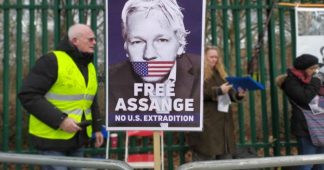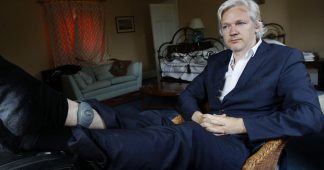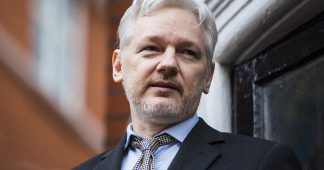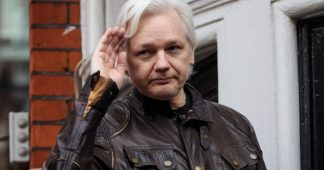Assange urged State Department to warn individuals who could be put at risk by an unredacted release
Posted on egories
A recording released on Wednesday by Project Veritas appears to prove a claim long made by WikiLeaks: its founder Julian Assange warned the US State Department after he learned over 250,000 State Department cables had been compromised and were about to be released. The release comes amid widespread calls for President Trump to pardon Assange before leaving office.
The release is a recorded phone call from August 26th, 2011, between Assange and former State Department attorney Cliff Johnson. Assange said files were taken from WikiLeaks by a “rogue” employee who would release the cables without redacting names of State Department sources. He urged the State Department to warn individuals who could be at risk.
“What we want the State Department to do is to step up its warning procedures to State Department sources mentioned in the cables,” Assange said. He said the State Department should ensure that “All of those individuals that the State Department thinks might be at risk in despotic regimes have been contacted.”
WikiLeaks first released State Department cables in 2010, after carefully redacting each file. In August 2010, Assange gave Guardian journalist David Leigh an encryption key to access the remaining cables.
In February 2011, Leigh and fellow Guardian journalist Luke Harding published a book that revealed the encryption key. Assange explained this in his phone call with Johnson. “The key has been disclosed in violation of our agreements by a mainstream media organization,” he said. WikiLeaks had been working with several mainstream outlets to redact the cables.
It was not publicly known that the encryption code was in Leigh and Harding’s book until the German magazine Der Freitag published a story about it on August 25th, 2011, the day before the recorded call.
Johnson asked Assange what would happen if the individuals who accessed the cables were convinced not to release them. Assange responded: “We would continue to proceed in the way that we have been proceeding. Which is in an orderly fashion reading the classified cables one by one, redacting source identities when necessary.”
WikiLeaks went ahead and released the full unredacted cache in September 2011. Writing for Salon shortly after the release, Glenn Greenwald explained the reasoning. Due to the way the encryption code and files were compromised, virtually every government intelligence agency had access to them, while journalists and the general public did not.
Greenwald wrote: “At that point, WikiLeaks decided — quite reasonably — that the best and safest course was to release all the cables in full, so that not only the world’s intelligence agencies but everyone had them, so that steps could be taken to protect the sources and so that the information in them was equally available.”
The recording blows a hole in the narrative of the US government’s prosecution team that is seeking Assange’s extradition. Throughout the extradition hearing, the lawyers representing the US have accused Assange and WikiLeaks of recklessly releasing the cables and other documents with no regard for the safety of the individuals named in them.
Claims that WikiLeaks led to the deaths of US government sources were dealt with in the 2013 trial of Chelsea Manning, Assange’s source for the cables and other documents related to the Iraq and Afghanistan wars. The US government conceded that it had no examples of individuals named in the files being killed.
If extradited to the US, Assange faces up to 175 years in prison for exposing US war crimes. The US indicted the WikiLeaks founder on 17 counts of espionage and one count of conspiring to commit computer intrusion, all charges related to Manning’s leaks. The British judge presiding over the trial is expected to make a decision on the extradition on January 4th.
Published at news.antiwar.com











